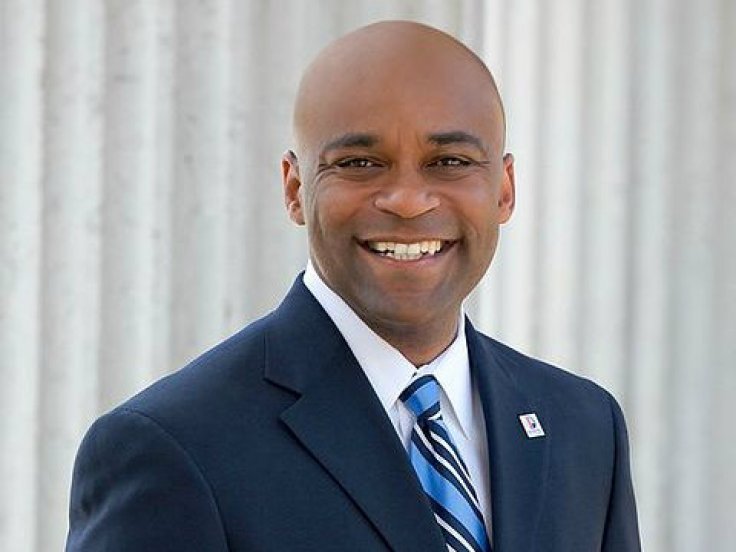Hancock Administration “Taking a Hard Look” at Vision Zero

According to a statement from the mayor’s office, Denver’s brass is sort of considering looking into possibly adopting Vision Zero, a package of policies based on the idea that traffic deaths and serious injuries are preventable, and that we have a moral obligation to act.
Amber Miller, Mayor Michael Hancock’s press secretary, prepared this statement in response to Streetsblog’s interview request with the mayor (it wasn’t granted):
The city is taking a hard look at the Vision Zero initiative to understand what principles would best serve the Denver community. Vision Zero is not a one size fits all program — for Denver it is about creating a value system within our community, making a commitment to behavior change to save lives and implementing plans to achieve that shared vision. Much like we have seen in Portland, San Francisco, New York and other cities, how we achieve that vision must be a unique approach designed for the people of Denver.
Our streets will only get safer from here by upholding our values and spurring behavior change. That change will happen in part by using more of the strategies as outlined in Vision Zero and the USDOT Mayor’s Challenge for Safer People, Safer Streets to bolster our enforcement and engineering, and by engaging our residents in a commitment to safer streets for all travelers.
It’s a response that could be interpreted a number of ways. Will City Hall “create a value system” based on the principle that no one should die in traffic? Unclear. Is Mayor Hancock prepared to pursue bolder street safety policies than the city has to date? Also unclear. All we can say, for now, is that Hancock is weighing his options and has yet to make a commitment.
To get a better sense of what should come next if City Hall decides to get serious about street safety, I checked in with Leah Shahum, who heads the Vision Zero Network, an organization that helps American cities walk the walk after committing verbally to Vision Zero.
The first step is to decide that no level of traffic fatalities is acceptable. “Setting such a bold goal is critical to change thinking,” said Shahum. “And it’s critical to change the thinking because we are culturally stuck in some wrong belief that a certain number of traffic fatalities and severe injuries are an unfortunate byproduct of developing our communities.”
The danger, she says, is that elected officials will adopt the rhetoric of Vision Zero without translating it into action.
“It’s not easy,” Shahum said. “It’s going to mean some real thinking about priorities and resources, and we want to help city leaders put their best foot forward in not just talking about Vision Zero, but moving toward Vision Zero. That’s going to mean adopting some new strategies and new policies… at various city government levels. We really want to help make sure Vision Zero isn’t just an empty commitment but rather is a shift in thinking toward safety first on on our streets.”
Miller reminded Streetsblog Denver that the city “has employed numerous safety strategies for our transportation system, including build-out of our bike network, traffic calming measures, a complete streets policy, and multiple projects” that make streets safer. These projects, however, have been piecemeal, often happening at the same time as road widenings, without a broader framework of systematically reducing the risk of traffic deaths. And Smart Growth America scored Denver’s complete streets policy at 52 out of 100. Still, these things mean Denver would have some experience to build on.
“We’re hearing that Vision Zero can be a very helpful tool to cities that have good building blocks in their existing plans,” Shahum said. “What Vision Zero can do is help bring all these pieces together, set a common goal, and then help prioritize all these actions.”
Denver has a lot of catching up to do. The traffic fatality rate in cities like Seattle, San Francisco, and New York, is already much lower than the rate in Denver, and the mayors of those cities are striving to do better by adopting Vision Zero as a moral obligation.
Most of Denver’s city council wants a Vision Zero approach. In a survey by the Inter-Neighborhood Cooperation, 11 of 13 council members said they support adopting it. (Council President Chris Herndon and Council Member Robin Kniech did not answer, but Kniech said she likes the idea.)
Mayor Hancock has the power to set a goal of zero deaths and make streets safer for everyone. If he wants to.


